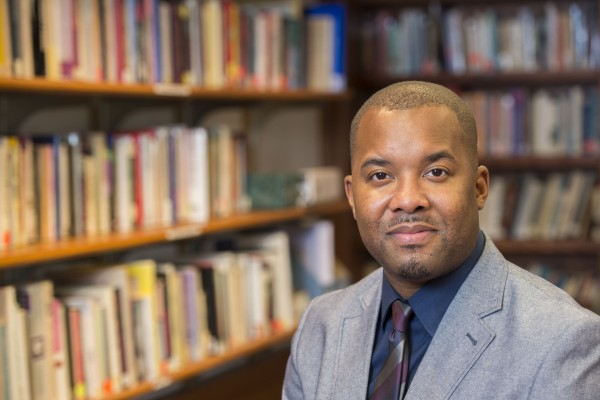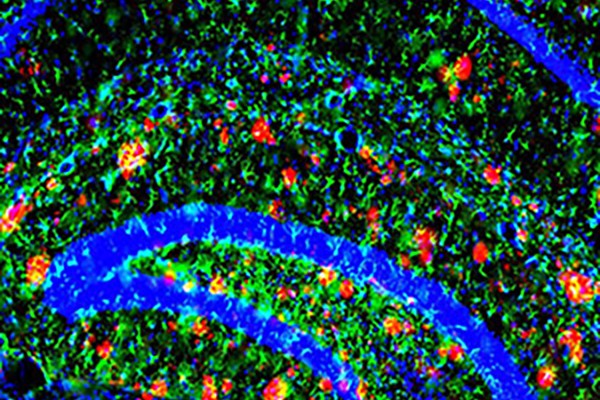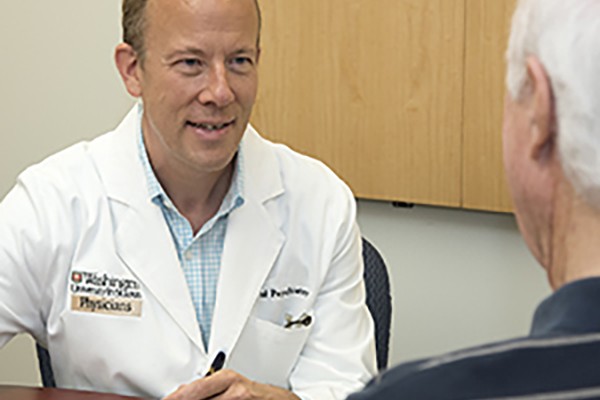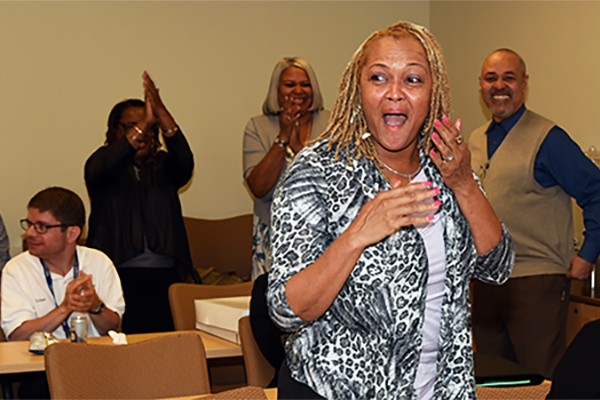Oral histories of a Divided City
The city is filled with stories and tells stories of its own. Last fall, the Center for the Humanities and the Sam Fox School — with support from the Andrew W. Mellon Foundation — launched The Divided City, an urban humanities initiative exploring historical and contemporary segregation across the globe and in St. Louis. Funded projects include an oral history of the Ferguson movement, launched this summer by Jeffrey McCune, PhD, Clarissa Rile Hayward, PhD, and Meredith Evans, PhD.
Ferguson Commission interns seek lasting change for region
Two Washington University seniors and one 2015 alum (David Dwight, pictured) are assisting the Ferguson Commission to create and write its recommendations to improve education, municipal courts and governments, economic opportunities and the relationship between residents and law enforcement.
Alumna receives national honor for civic leadership
Brittany Packnett, a 2007 graduate of Washington University in St. Louis, has received the 2015 Peter Jennings Award for Civic Leadership from Teach For America.
A message from Chancellor Wrighton
Next week marks the one-year anniversary of events in Ferguson that have since reverberated across the entire St. Louis community and the nation. The tragedy in Ferguson and subsequent events across the country have affected all and raised consciousness to major challenges that must be met. This special issue of the Record includes perspectives and updates intended to give us the opportunity not only to look back, but also to learn, engage and think about the road ahead.
WashU Expert: DOJ report on St. Louis County Family Court raises new concerns about discrimination
The U.S. Department of Justice released July 31 a report critical of the St. Louis County Family Court, alleging racial bias and unfair treatment of black youth, among other accusations. Mae Quinn, JD, professor of law and director of the Juvenile Law and Justice Clinic at Washington University in St. Louis, is hopeful the report will lead to some measure of change and reform.
Brain’s ability to dispose of key Alzheimer’s protein drops dramatically with age
The greatest risk factor for Alzheimer’s disease is advancing age. Researchers at Washington University School of Medicine in St. Louis have identified some of the key changes in the aging brain that lead to the increased risk. The changes center on amyloid beta 42,
a main ingredient of Alzheimer’s brain plaques.
$15 million funds research to help older adults prevent cognitive decline
Researchers at Washington University School of Medicine in St. Louis, led by Eric J. Lenze, MD, have received a $15 million grant to study strategies — including exercise, health education, meditation and yoga — aimed at helping older adults prevent or reverse typical age-related cognitive declines.
Brown School launches new degree programs
The Brown School at Washington University in St. Louis
has launched three new joint-degree programs and a dual-degree program
with Fudan University to begin this fall, expanding class offerings and
learning opportunities both in St. Louis and around the world.
It’s alive, it’s alive!
It was bedlam at mission control when the first images of Pluto came down over the Deep Space Network. Not only were there few craters, but some areas of the planet were smooth as a billiard ball and others rumpled and rippled; some stained the color of dried blood and others gleaming bright white. The variety meant that there was geology on Pluto, alien though the
geological processes might be to earthlings.
Dean honors School of Medicine staff with annual service awards
Each year, Larry J. Shapiro, MD, dean of the School of Medicine surprises employees with the highest accolades given to staff: the dean’s service awards. The top honor, the Dean’s Distinguished Service Award, this year went to Shirley R. Vaughn, of the Department of Anesthesiology. She is pictured with the dean.
View More Stories






